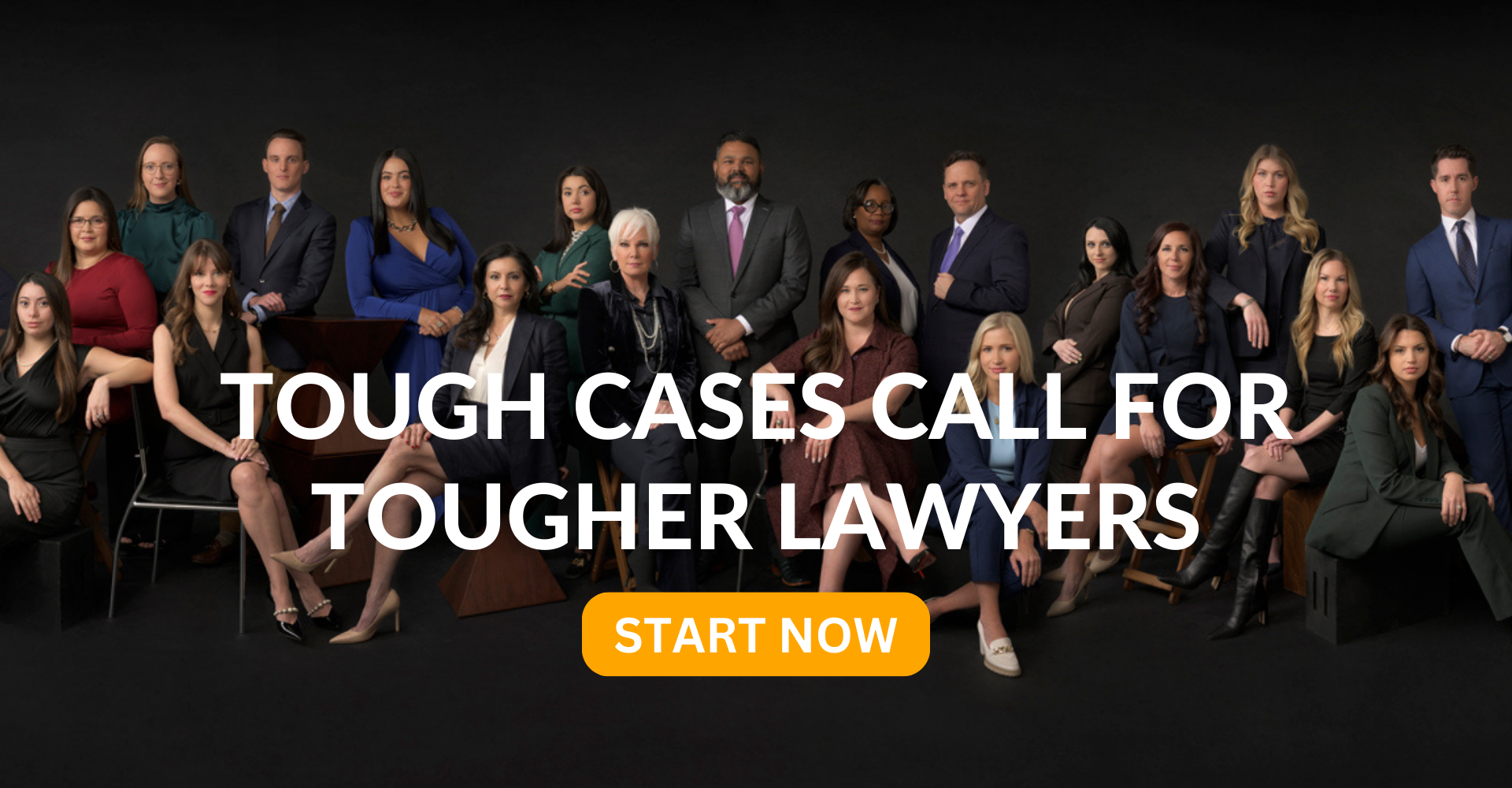Auto Insurance in Texas: A Comprehensive Guide
In Texas, as in many other states, drivers are required by law to carry certain minimum levels of insurance coverage. However, the world of auto insurance can be complex, with various types of coverage available, each serving a specific purpose. Too often we see individuals who get insurance to protect others (comprehensive coverage) while not getting coverage to protect themselves (Comprehensive, PIP, MedPay). So in this article, we will walk you through the different types of insurance and how to best protect yourself.
Whether you’re a new driver in Texas or a long-time resident looking to better understand your insurance options, this article will provide you with the knowledge you need to make informed decisions about your auto insurance coverage.
Liability Coverage
Liability coverage is the foundation of auto insurance in Texas and is required by law for all drivers. This type of insurance protects you financially if you’re at fault in an accident that causes injury to others or damage to their property. In Texas, the minimum required liability coverage is often referred to as 30/60/25, which breaks down as follows:
- $30,000 per person for bodily injury
- $60,000 per accident for bodily injury
- $25,000 for property damage
It’s important to note that these are minimum requirements, and many drivers choose to carry higher limits for better protection. Liability coverage is divided into two main categories:
Bodily Injury Liability
This coverage pays for the medical expenses, lost wages, and pain and suffering of individuals injured in an accident where you’re at fault. It applies to both the other driver and their passengers. In severe cases, it can also cover legal fees if you’re sued as a result of the accident.
Property Damage Liability
This part of your liability coverage pays for damage you cause to another person’s property in an accident. This most commonly applies to the other driver’s vehicle but can also cover damage to structures like fences or buildings if you were to crash into them.
While liability coverage is essential and required by law, it’s important to understand that it does not cover your own injuries or damage to your own vehicle. For those types of protection, you’ll need to consider additional coverage options.

Collision Coverage
Collision coverage is an optional type of insurance that pays for damage to your own vehicle resulting from a collision with another vehicle or object, regardless of who is at fault. This coverage can be particularly valuable for newer or more expensive vehicles, as repair costs can be significant.
Here’s what collision coverage typically includes:
- Repairs to your vehicle after an accident
- Replacement of your vehicle if it’s deemed a total loss
- Coverage for collisions with other vehicles, as well as fixed objects like poles or guardrails
- Protection if your car is damaged in a hit-and-run incident
It’s worth noting that collision coverage usually comes with a deductible, which is the amount you agree to pay out of pocket before your insurance kicks in. Higher deductibles generally result in lower premiums, but mean you’ll pay more if you need to make a claim.
While collision coverage isn’t required by law in Texas, if you’re financing or leasing your vehicle, your lender may require you to carry this type of insurance to protect their investment.
Comprehensive Coverage
Comprehensive coverage, sometimes called “other than collision” coverage, protects your vehicle from damage caused by events other than collisions. This type of coverage is also optional in Texas but can provide valuable protection against a wide range of potential hazards.
Comprehensive coverage typically includes protection against:
- Theft
- Vandalism
- Fire
- Natural disasters (such as hurricanes, tornadoes, or floods)
- Falling objects (like tree branches or hail)
- Damage from animals (such as hitting a deer)
Like collision coverage, comprehensive insurance usually comes with a deductible. Also similar to collision coverage, while it’s not required by law, lenders often require comprehensive coverage for financed or leased vehicles.
Comprehensive coverage can be particularly valuable in Texas, where severe weather events like hailstorms and hurricanes are not uncommon. It provides peace of mind knowing that your vehicle is protected against a wide range of potential damages beyond just accidents.
Uninsured/Underinsured Motorist Coverage (UM/UIM)
Uninsured/Underinsured Motorist coverage, often abbreviated as UM/UIM, is an important type of protection that safeguards you if you’re in an accident with a driver who either has no insurance or doesn’t have enough insurance to cover the damages they’ve caused.
In Texas, insurance companies are required to offer UM/UIM coverage, but drivers can choose to reject it in writing. However, given the number of uninsured drivers on the road, many experts recommend keeping this coverage.
UM/UIM coverage is typically split into two categories:
Uninsured Motorist Bodily Injury (UMBI)
This covers medical expenses, lost wages, and pain and suffering for you and your passengers if you’re hit by an uninsured driver. It can also provide coverage in hit-and-run accidents where the at-fault driver can’t be identified.
Uninsured Motorist Property Damage (UMPD)
This covers damage to your vehicle caused by an uninsured driver. In Texas, this coverage typically has a $250 deductible.
Underinsured motorist coverage works similarly but comes into play when the at-fault driver has some insurance, but not enough to cover all the damages. Your UIM coverage would kick in to cover the difference, up to your policy limits.
UM/UIM coverage can be crucial in protecting you from significant out-of-pocket expenses if you’re involved in an accident with an uninsured or underinsured driver. Given that Texas has one of the highest rates of uninsured drivers in the country, this coverage can provide valuable peace of mind.

Personal Injury Protection (PIP)
Personal Injury Protection, or PIP, is a type of no-fault insurance coverage that pays for medical expenses and lost wages regardless of who was at fault in an accident. In Texas, insurance companies are required to offer PIP coverage, but drivers can reject it in writing.
PIP coverage typically includes:
- Medical expenses: This can cover hospital bills, doctor visits, medications, and even alternative treatments like chiropractic care or acupuncture in some cases.
- Lost wages: If you’re unable to work due to injuries from an auto accident, PIP can help replace a portion of your lost income.
- Essential services: This can cover costs for services you can’t perform due to your injuries, such as house cleaning or child care.
- Funeral expenses: In the unfortunate event of a fatality, PIP can help cover funeral costs.
One of the key advantages of PIP is that it provides immediate coverage without waiting for fault to be determined in an accident. This can be particularly helpful for covering immediate medical expenses or lost wages.
PIP coverage in Texas typically has no deductible and pays up to the limit of the policy, which is often $2,500 by default, though higher limits can be purchased. It’s worth noting that PIP coverage extends to all occupants of your vehicle, not just the policyholder.
While some drivers might consider rejecting PIP to lower their premiums, it’s important to carefully consider the potential financial impact of not having this coverage, especially if you don’t have robust health insurance or disability coverage through your employer.
Medical Payments Coverage (MedPay)
Medical Payments Coverage, often referred to as MedPay, is similar to Personal Injury Protection (PIP) in that it covers medical expenses resulting from an auto accident, regardless of who was at fault. However, there are some key differences between MedPay and PIP.
MedPay typically covers:
- Medical expenses: This includes hospital visits, surgeries, X-rays, professional nursing services, and more.
- Funeral expenses: In the case of a fatal accident, MedPay can help cover funeral costs.
Unlike PIP, MedPay does not cover lost wages or essential services. It focuses solely on medical and funeral expenses. However, MedPay can sometimes offer higher coverage limits than PIP, which can be beneficial if you’re involved in a serious accident with extensive medical costs.
Another key difference is that MedPay can sometimes cover you if you’re injured while in someone else’s car or if you’re struck by a vehicle while walking or cycling. This broader coverage can make MedPay a valuable addition to your insurance policy.
In Texas, MedPay is optional, and many drivers choose between either PIP or MedPay rather than carrying both. The choice often depends
Additional Coverage Options
While the types of coverage we’ve discussed so far form the core of most auto insurance policies in Texas, there are several additional coverage options that can provide extra protection or convenience. These include:
Rental Reimbursement Coverage
This type of coverage helps pay for a rental car if your vehicle is being repaired due to a covered accident. It can be particularly valuable if you rely heavily on your vehicle and don’t have an alternative means of transportation.
Towing and Labor Coverage
Also known as roadside assistance, this coverage can pay for services like towing, battery jumps, flat tire changes, and locksmith services. It can be a convenient addition to your policy, especially if you frequently travel long distances.
Gap Insurance
If you’re financing or leasing a vehicle, gap insurance can be crucial. It covers the difference between what you owe on your car loan and what your car is actually worth if it’s totaled in an accident. This can protect you from having to pay out of pocket if you owe more on your loan than your car is worth.
New Car Replacement Coverage
Some insurers offer this coverage for newer vehicles. If your car is totaled, instead of paying you the depreciated value of your car, the insurer will pay for a brand-new car of the same make and model.
Custom Equipment Coverage
If you’ve made significant modifications to your vehicle, standard insurance policies may not fully cover these upgrades. Custom equipment coverage can protect aftermarket additions like custom stereos, wheels, or other modifications.
Conclusion
Navigating the world of auto insurance in Texas can seem daunting, with numerous coverage types and options available. However, understanding these different types of insurance is crucial for ensuring you have the right protection for your specific needs and circumstances.
From the mandatory liability coverage that forms the foundation of your policy to optional coverages like comprehensive, collision, UM/UIM, PIP, and MedPay, each type of insurance serves a specific purpose in protecting you, your vehicle, and others on the road.
Remember, while Texas law sets minimum requirements for auto insurance, these minimums may not provide adequate protection in all circumstances. It’s important to carefully consider your personal situation, including factors like the value of your vehicle, your assets, your health insurance coverage, and your risk tolerance when deciding on your auto insurance coverage.
Additionally, the auto insurance landscape is not static. Laws can change, and new types of coverage may become available. It’s a good practice to review your auto insurance policy regularly and consult with insurance professionals to ensure your coverage continues to meet your needs. By understanding the types of auto insurance available in Texas, you can make informed decisions about your coverage, balancing protection and cost to create an insurance policy that gives you confidence every time you get behind the wheel.